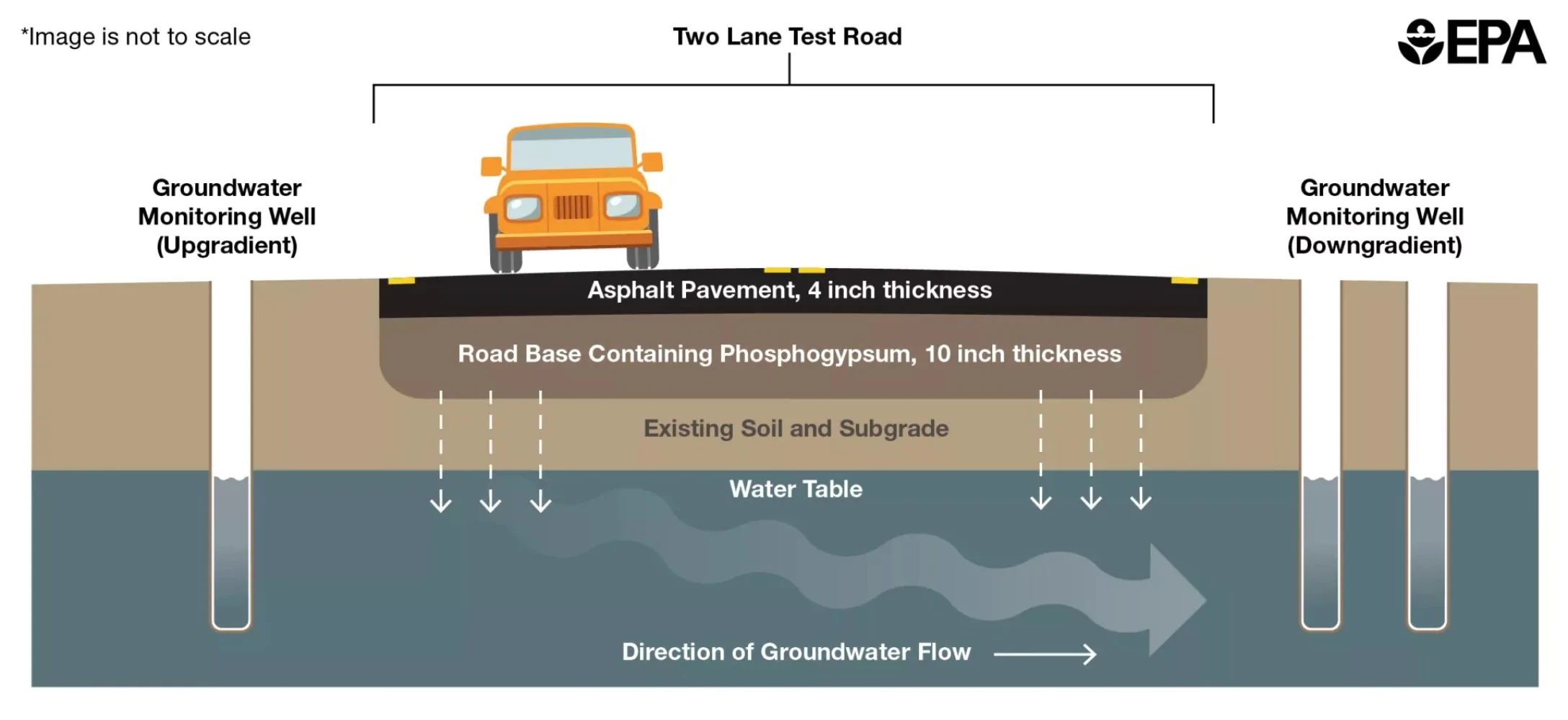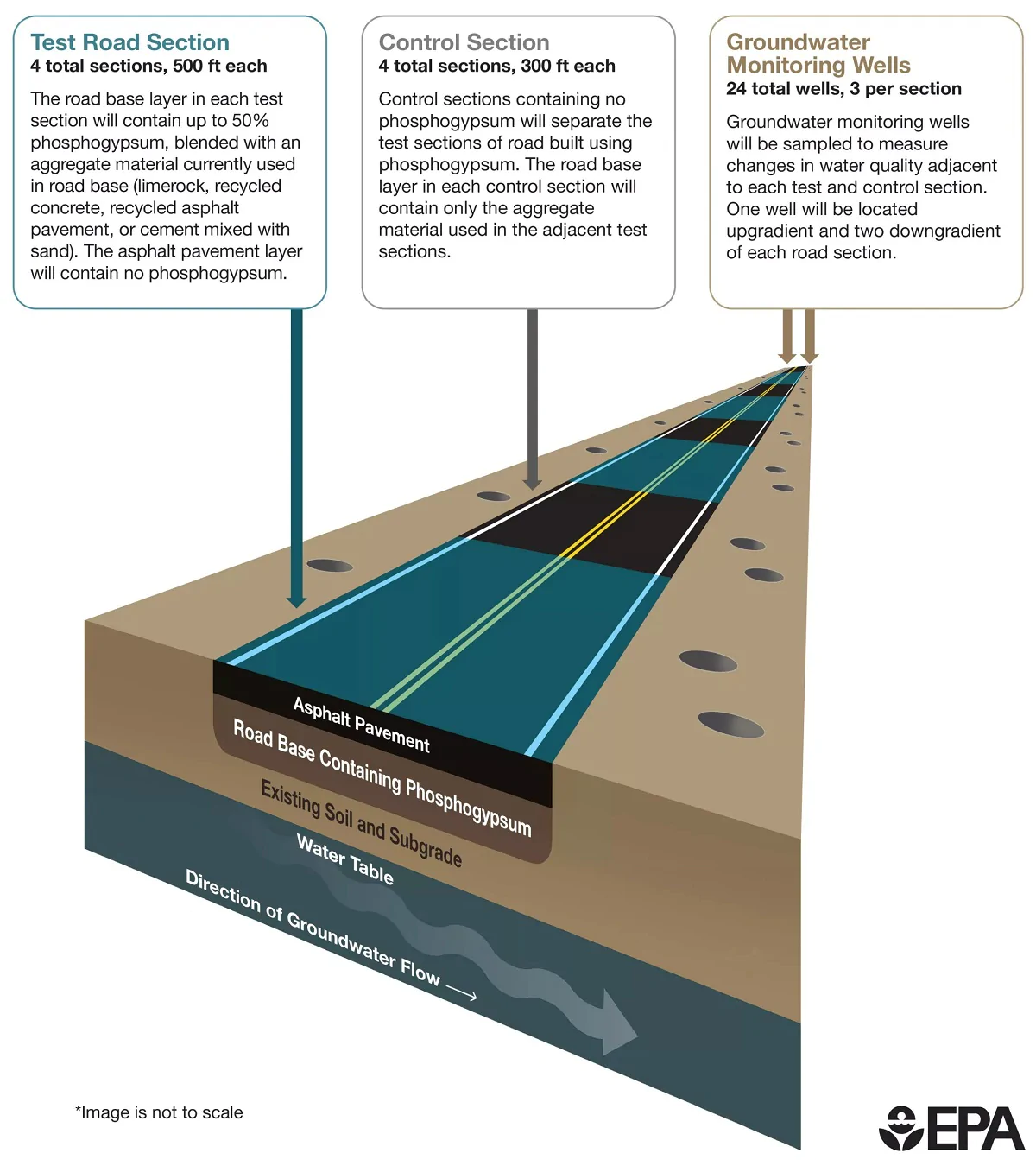Phosphogypsum Road Project Sparks Debate: Is It Safe?

by AutoExpert | 4 January, 2025
Florida will build an experimental radioactive waste road. The project has received approval from the US Environmental Protection Agency (EPA). Mosaic Fertilizer, a company that produces phosphate fertilizer, will construct the new road on its private property in the state of Florida.
The building will make use of production waste. It is specifically phosphogypsum. When it decays, the radium it contains releases radioactive radon gas, a hazardous carcinogen. The initiative has, of course, infuriated the local population. However, the US Environmental Protection Agency (EPA) authorized the building.

Phosphogypsum will only be utilized for the "base" (instead of crushed stone), according to the road's developers. Because of the 10 cm thick layer of asphalt covering it, neither humans nor cars will be in direct touch with the radioactive material.
Furthermore, the two-lane road will not be entirely composed of phosphogypsum. Only four 225-meter portions will make use of it. There won't be any hazardous material in the last four 135-meter portions. However, given the possibility of radioactive materials getting into groundwater, even minimal building raises concerns.
It's important to note that there has long been discussion in the US about using phosphogypsum in road building. Donald Trump's government authorized its use in 2020, but Joe Biden's administration revoked that authorization.

















